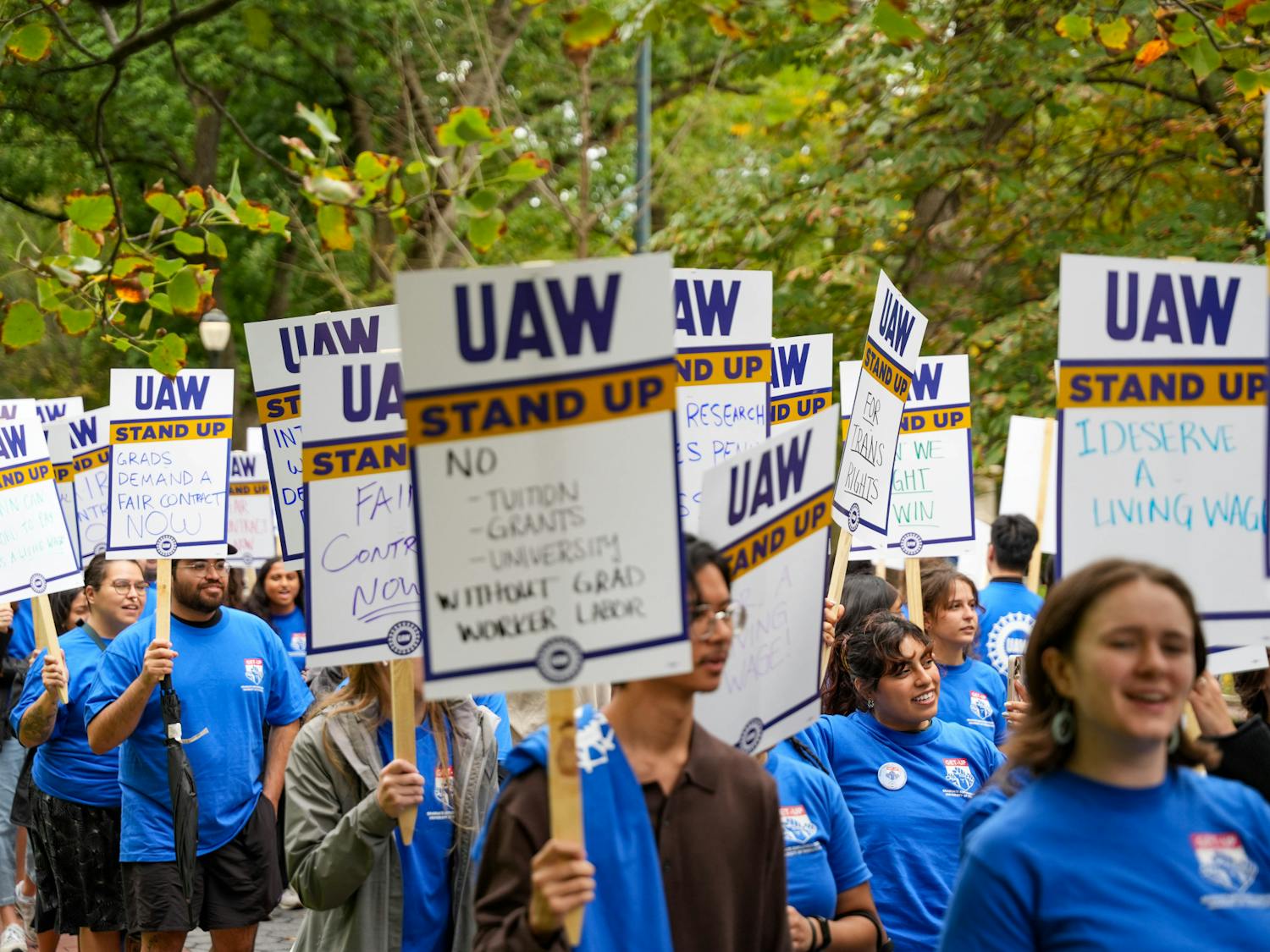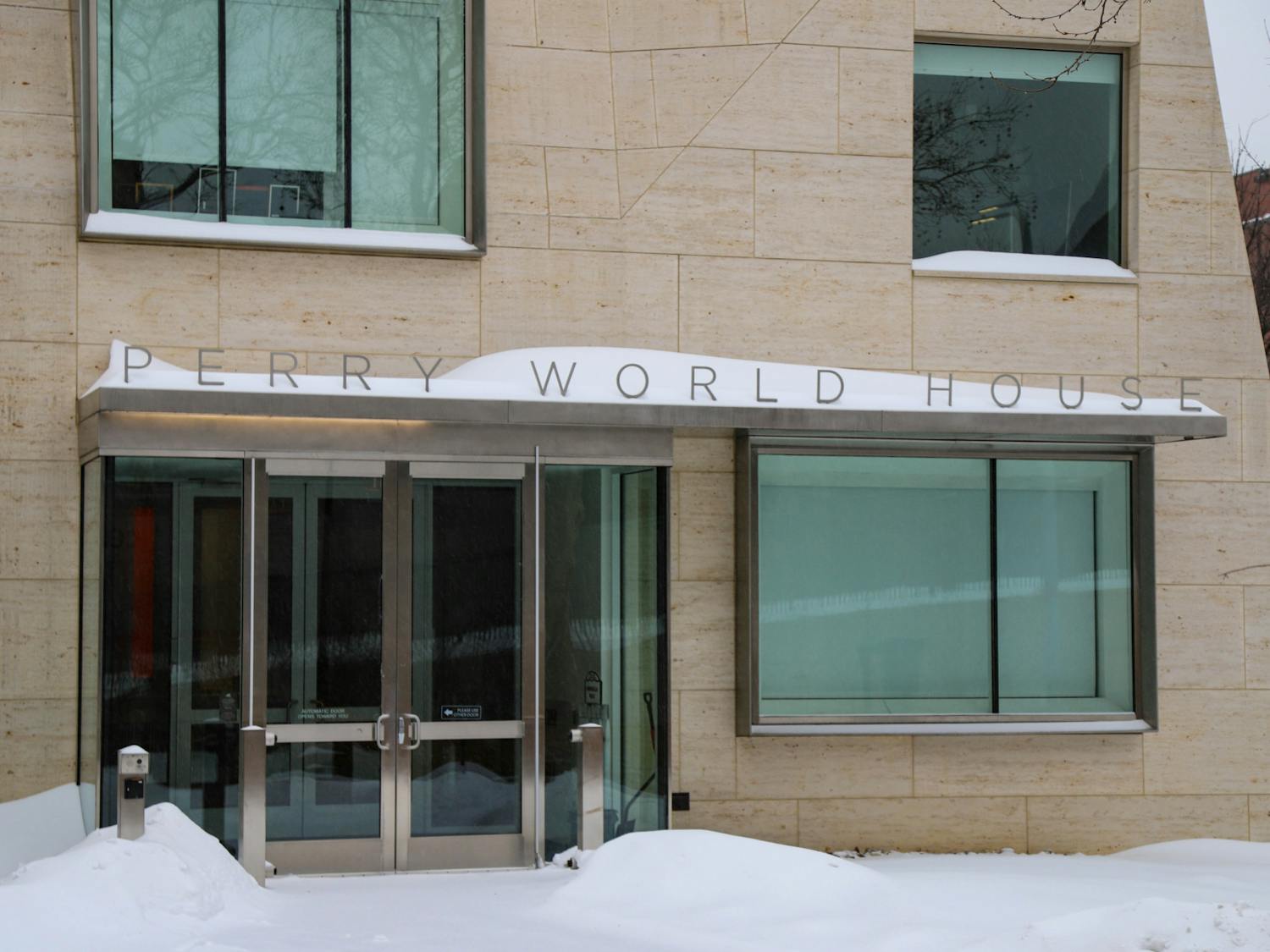Penn Carey Law School hosted its first workshop in a yearlong series on artificial intelligence and climate change.
The first workshop was hosted on Sept. 21 through the Penn Program on Regulation. The series — open to all members of the Penn community — will consist of three workshops in both the fall and spring semesters to discuss how artificial intelligence can shape issues related to climate change. The next event, "AI and Climate Data," will occur on Oct. 24.
The first lecture in the series, “Tackling Climate Change with Machine Learning,” which featured David Rolnick — Assistant Professor and Canada CIFAR AI Chair in the School of Computer Science at McGill University and the Mila-Quebec AI Institute — was a part of Penn’s annual Climate Week programming.
Trini Feng, an Engineering first year who heard about the event through a Climate Week newsletter, enjoyed the first workshop because it allowed her to explore her interest in computer science through the lens of social impact alongside policymakers and AI experts.
“I thought the atmosphere was interesting because everyone was engaged in the topic,” Feng said. “There were [also] a lot of people from different fields [in the audience].”
Richard Berk, Emeritus Professor of Criminology and Statistics and moderator of the next workshop, also attended the first in the series.
“I think the speaker handled it extremely well. He covered a wide range of extremely demanding topics and made them very accessible,” Berk said.
Cary Coglianese — the director of Penn Program on Regulation and a professor at Penn Carey Law — stated that the strong attendance and diversity of topics discussed by Rolnick, who was also a postdoctoral student at Penn, set a strong foundation for the rest of the series.
RELATED:
Fourth annual Penn Climate Week begins, with 30 events planned across campus
Perry World House names foreign affairs and policy experts in 2023-24 visiting fellows cohort
“[Rolnick] gave a really nice presentation, showing the different ways that machine learning algorithms can be used to help make decisions to either reduce greenhouse gas emissions or to manage some of the resources, changes, and ecosystem changes that are occurring because of climate change,” Coglianese said.
The next workshop will feature Amy Braverman, Principal Statistician at the Jet Propulsion Laboratory, California Institute of Technology, and will be moderated by Berk. The lecture will focus on using data and AI data analytics tools to address climate change.
“[Braverman’s] focus is going to be on data: How do we get good data, how does AI help us get good data, how does AI help us analyze for many people,” Berk said.
Berk, by the end of the workshop, hopes that students will be encouraged to learn about new tools to address climate change.
Coglianese echoed that sentiment, hoping that new generations can figure out solutions to climate change.
“I would be delighted and thrilled if this workshop series helped to give some students the idea that there are ways of working with data analytics and artificial intelligence tools that can help address climate change. And, if we can, inspire you all to do better than [my generation] has been able to do. That gives me hope, and I hope it gives everybody hope,” Coglianese said.









